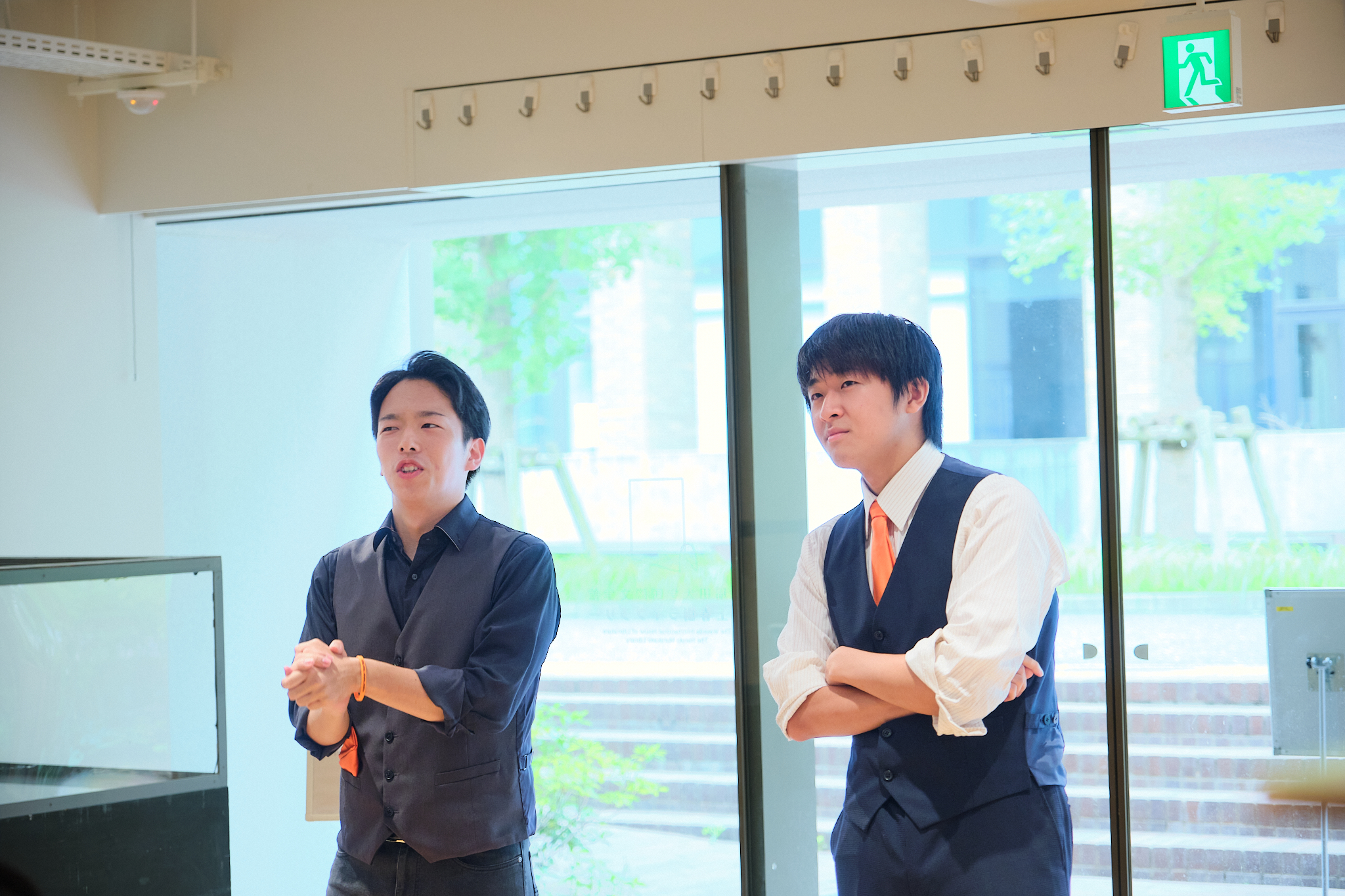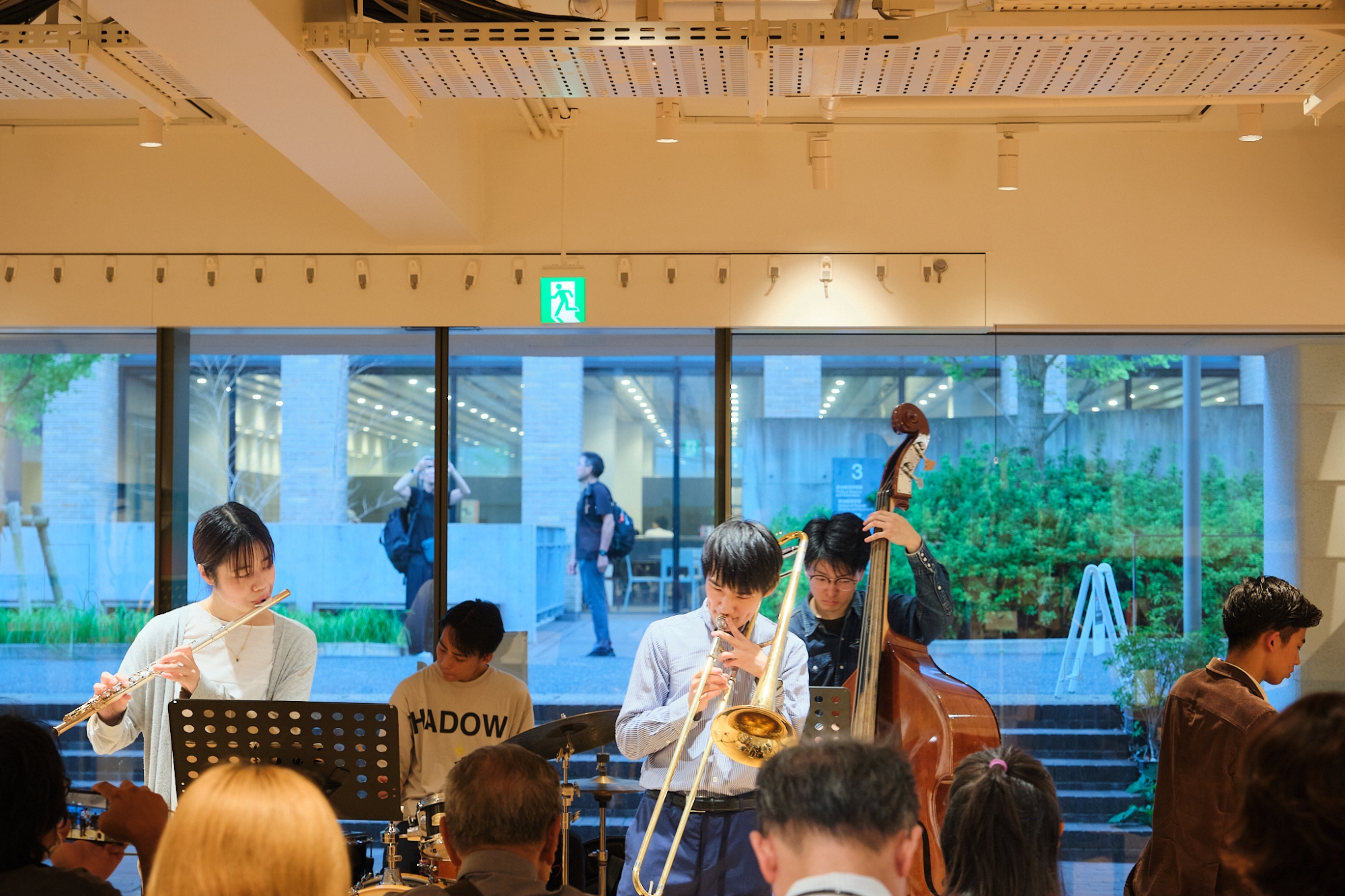The Impact of the Arts: Celebrating 3 Years of the Haruki Murakami Library and the Orange Cat Cafe
Wed, Oct 16, 2024-
Tags
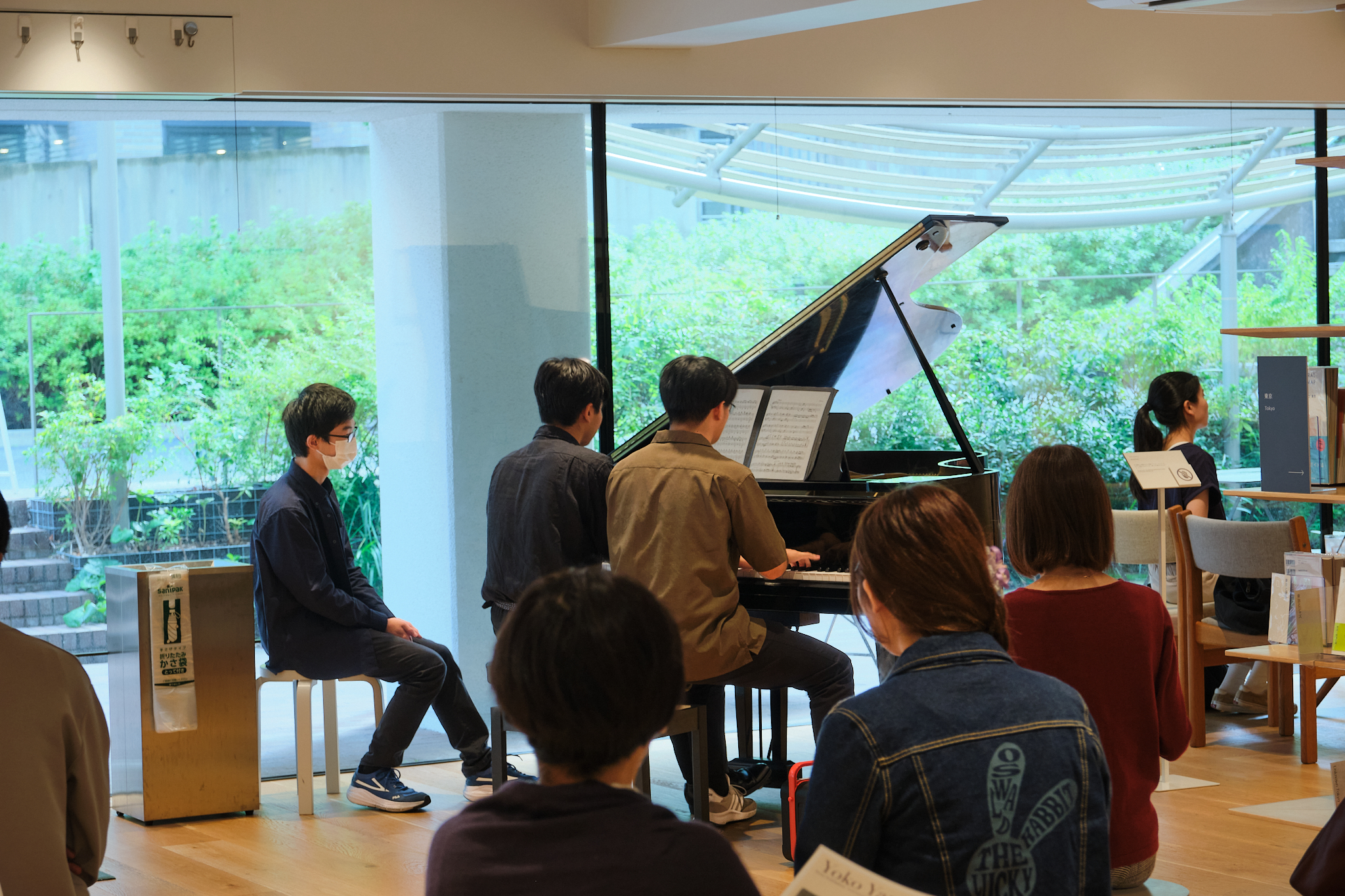
On October 1st, the Waseda International House of Literature (WIHL)–more commonly known as the Haruki Murakami Library–began the celebration of its 3-year anniversary with circle performances at the student-run Orange Cat cafe. This celebration will continue throughout the month of October, encapsulating different genres of the arts at each event.
The October 1st performances at the Orange Cat showcased the building’s purpose to provide a collaborative and memorable space that inspires connectivity between not only the university and its students, but for anyone who enters. Six circles–or student clubs, for those who are not familiar with the Waseda lingo– made use of the acoustics provided by the warm wooden architecture of the building with performances ranging from jazz music to recitations from excerpts of literature. The proximity of the performers to the audience highlighted the intimacy created by the layout of the Orange Cat. The piano that used to be lovingly played in Haruki Murakami’s jazz bar, Peter Cat, was played by the students. The glass windows of the cafe tempted outside viewers to indulge their curiosity and join the audience. The grass beds in the adjacent building blew in the wind as if they were listening and dancing along to the performances. What could have been a normal Tuesday for me was transformed into a timeless experience of live music with the privilege to witness dedication to a craft beloved by my hard-working peers. These performances highlight the impact the Haruki Murakami Library has on Waseda University as a place of community where attendees can relish in the arts.
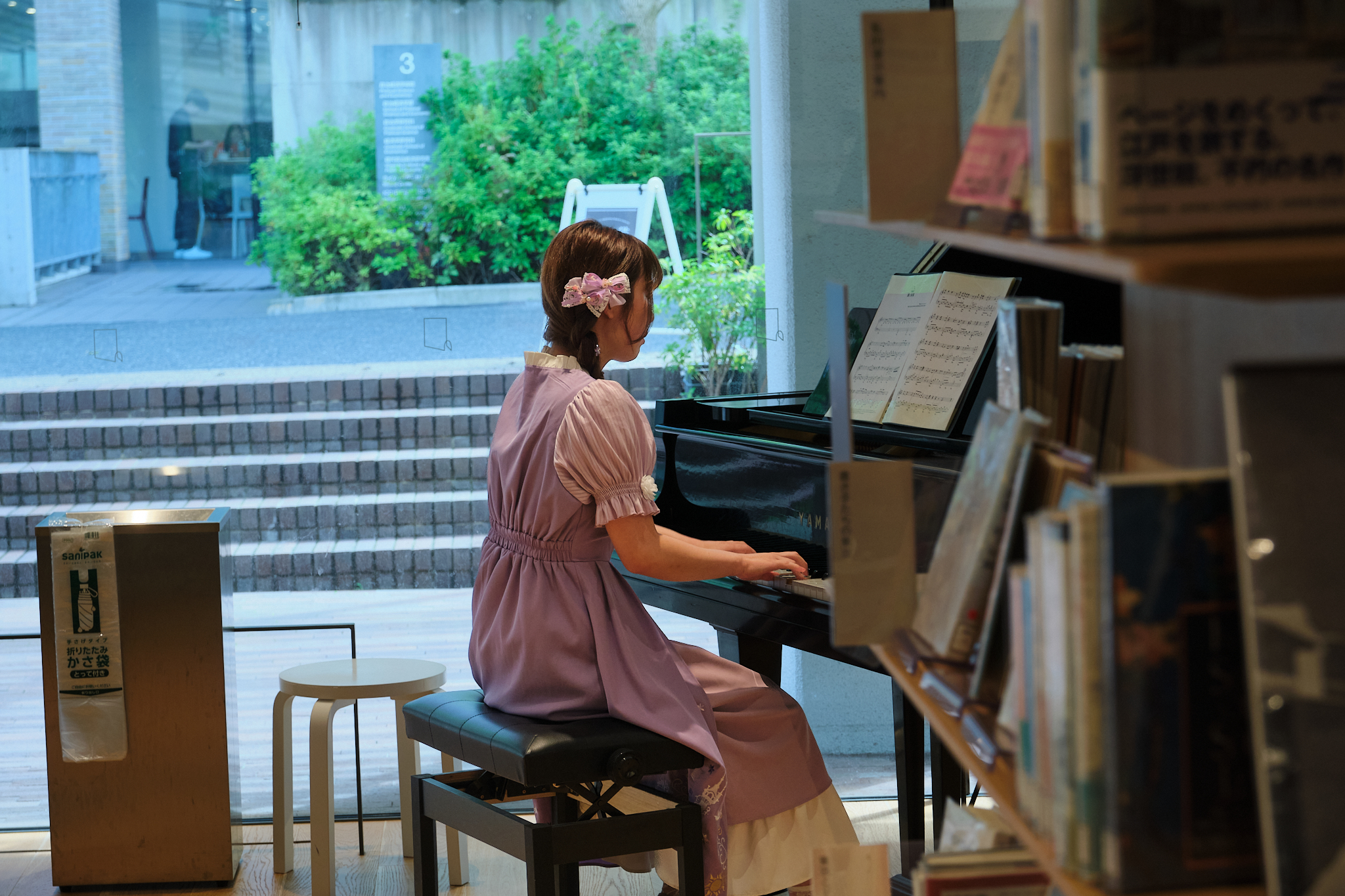 The six circles that joined in celebrating the 3-year anniversary of the WIHL’s, and thus the Orange Cat’s opening, were the Seiren Musical Project, the Swing & Jazz Club, ピアノの会 piano no kai (the Piano Club), アナウンス研究会 anaunsu kenkyuukai (the Announcing Club), Waseda Strings, and モダンジャズ研究会 modan jyazu kenkyuukai (the Modern Jazz Club). Performing throughout an entire day, guests of the Orange Cat and perusers of the WIHL were able to watch and listen as they pleased, creating a constantly shifting yet engrossing environment for the students who dedicated part of their summer break to celebrate their university’s culture.
The six circles that joined in celebrating the 3-year anniversary of the WIHL’s, and thus the Orange Cat’s opening, were the Seiren Musical Project, the Swing & Jazz Club, ピアノの会 piano no kai (the Piano Club), アナウンス研究会 anaunsu kenkyuukai (the Announcing Club), Waseda Strings, and モダンジャズ研究会 modan jyazu kenkyuukai (the Modern Jazz Club). Performing throughout an entire day, guests of the Orange Cat and perusers of the WIHL were able to watch and listen as they pleased, creating a constantly shifting yet engrossing environment for the students who dedicated part of their summer break to celebrate their university’s culture.
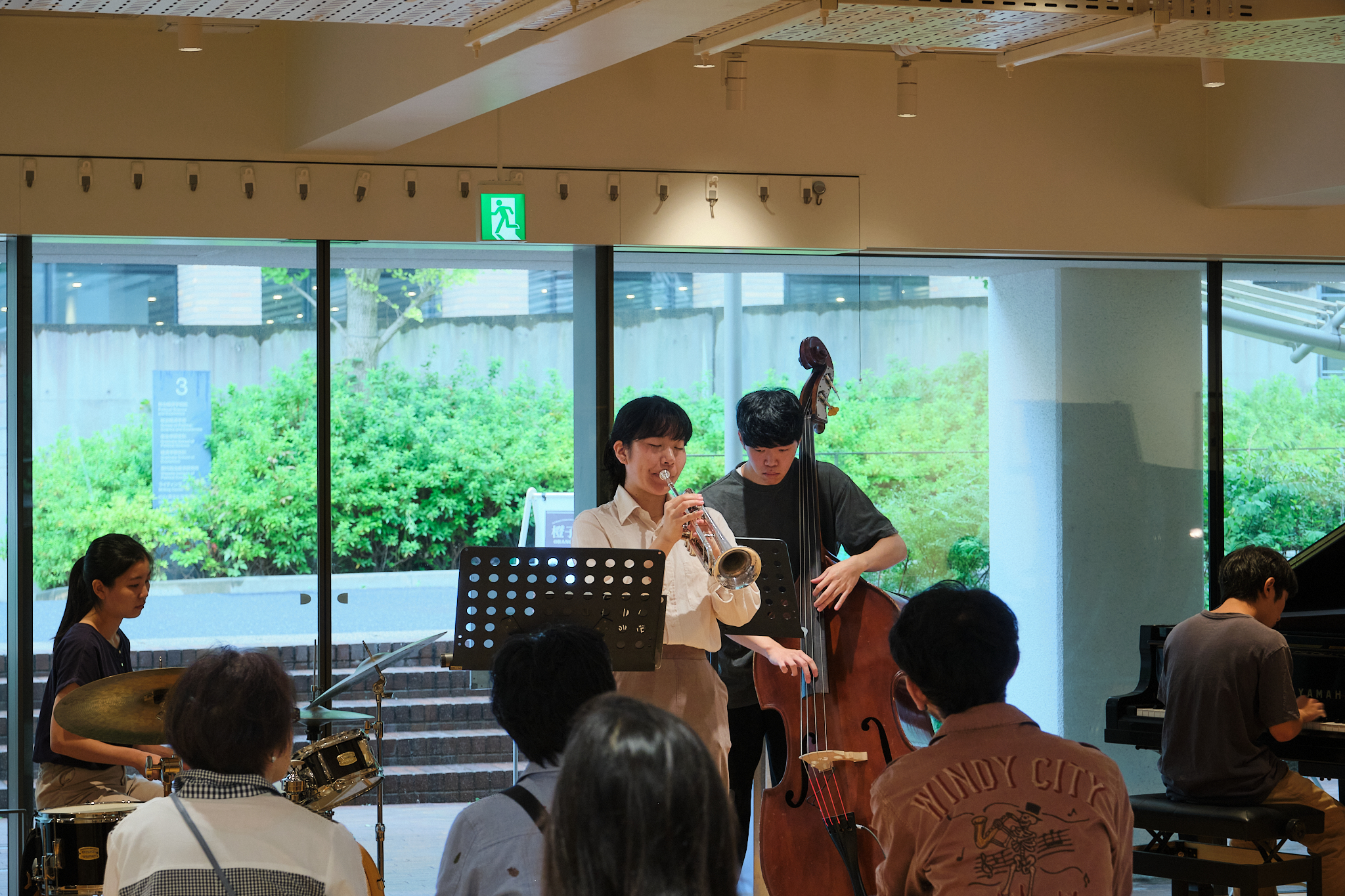
As a busy Waseda student myself, attending all of the performances was challenging. Fortunately, however, I was able to catch Waseda Strings and the Modern Jazz Club. Waseda Strings curated a setlist that would satisfy all age groups and interests of the audience at Orange Cat. From less commonly known classical pieces like a Bach Fugue to the famous Canon in D Major (also known as Pachelbel’s Canon), and songs that everyone can sing along to, Waseda Strings performed a range wide enough for the whole audience to enjoy. This also allowed them to show their skill range from the complex polyphony within fugues to the underappreciated technique required for Pachelbel’s Canon.
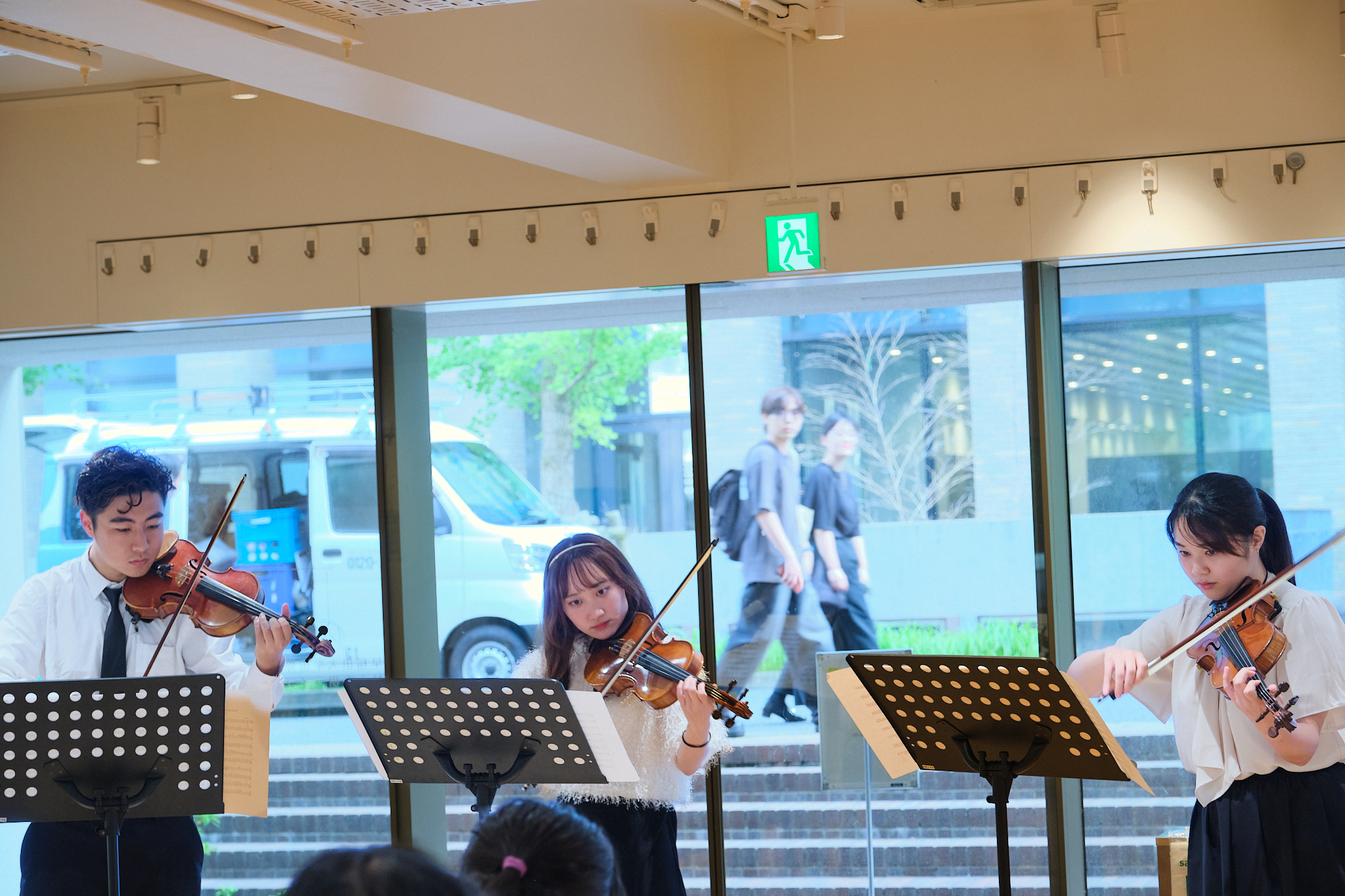
Additionally, the Modern Jazz Club showed off their techniques with a diverse repertoire that included jazz standards such as Billie’s Bounce and Satin Doll but also by reaching out to more modern styles such as Charlie Parker’s “My Little Suede Shoes”–which consists of a Latin-esque beat count–and Cole Porter’s “It’s All Right With Me”–a high-tempo tune that requires intense concentration and steady, even playing throughout the entire band. This circle seemed to be well-known amongst students and regular customers of the Orange Cat. While they were setting up their instruments to play, I overheard an older man in the audience exclaim to the pianist that he had been waiting at the cafe for three hours to watch them perform. It was easy to tell that this warmed the players’ hearts, as it likely helped them realize that not only were their families and friends there to listen, but fans of the music were also present.
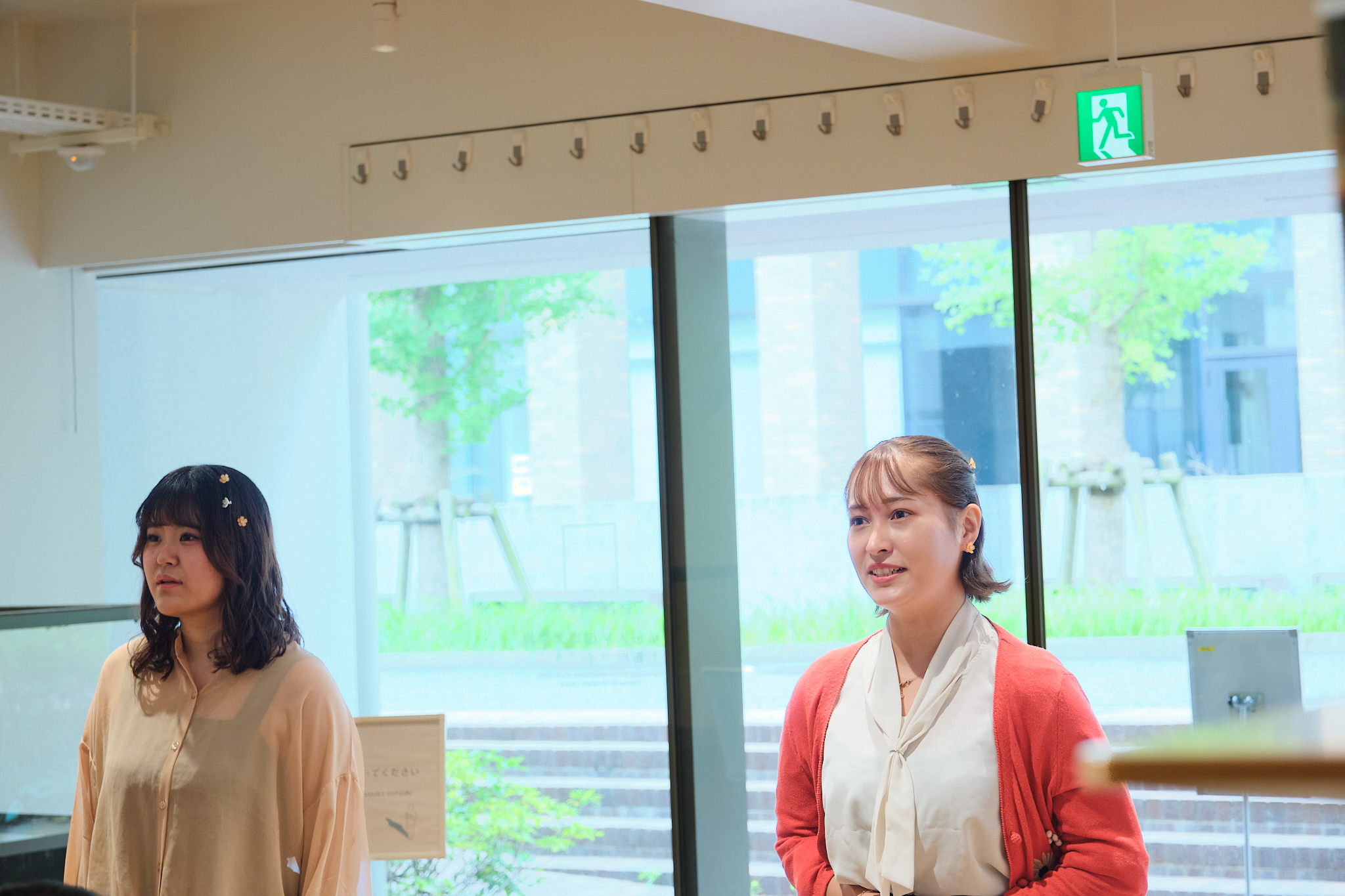
As someone who has grown up in the arts community playing classical piano for fifteen years and attending a performing arts middle school and high school, watching these performances gave me a sense of nostalgia and comfort that can be easily overlooked during a college student’s busy daily life of classes and part-time jobs; it was like a breath of fresh air in between stuffy classrooms and stressful study sessions. Watching these students perform reminded me of the significance of circles and why supporting them not only spreads passion to fellow peers but also helps us remember that places such as the WIHL are all around us. Not to mention, it also aids in sharing these passions with the local community and potentially the rest of the world.
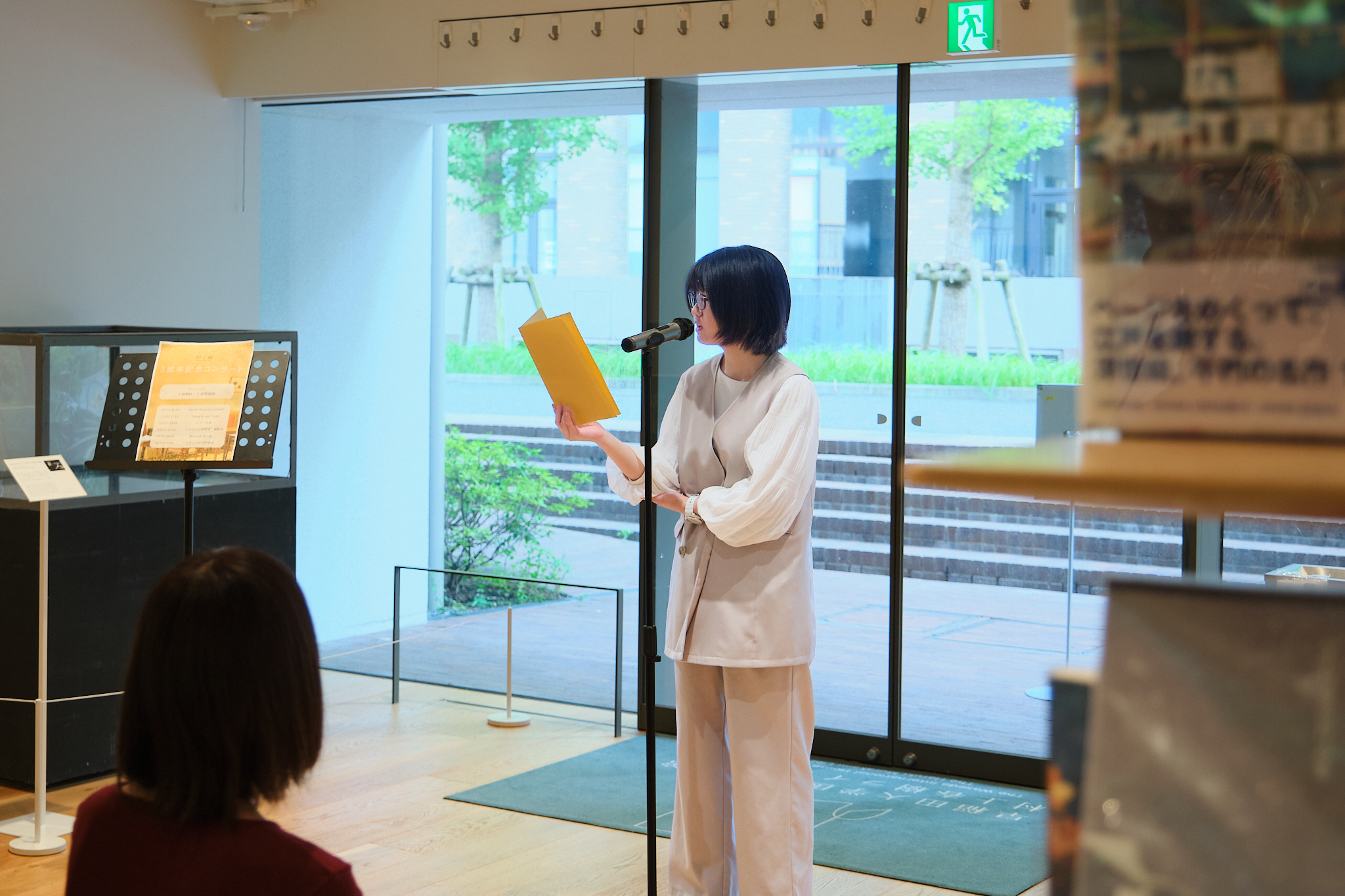
Without venues and locally significant buildings like the WIHL and the Orange Cat cafe, circles would have less opportunities to share their interests with their families, friends, other students, and audiences. As one of the attending students, it seemed clear to me that the 3-year anniversary celebration of the Waseda International House of Literature and the Orange Cat cafe was incredibly successful in reminding those who got to experience the privilege of live
music and how it can maintain Murakami’s legacy on campus through students today.
This article was written by the following Student Contributor:
Maika Kinoshita
School of International Liberal Studies
